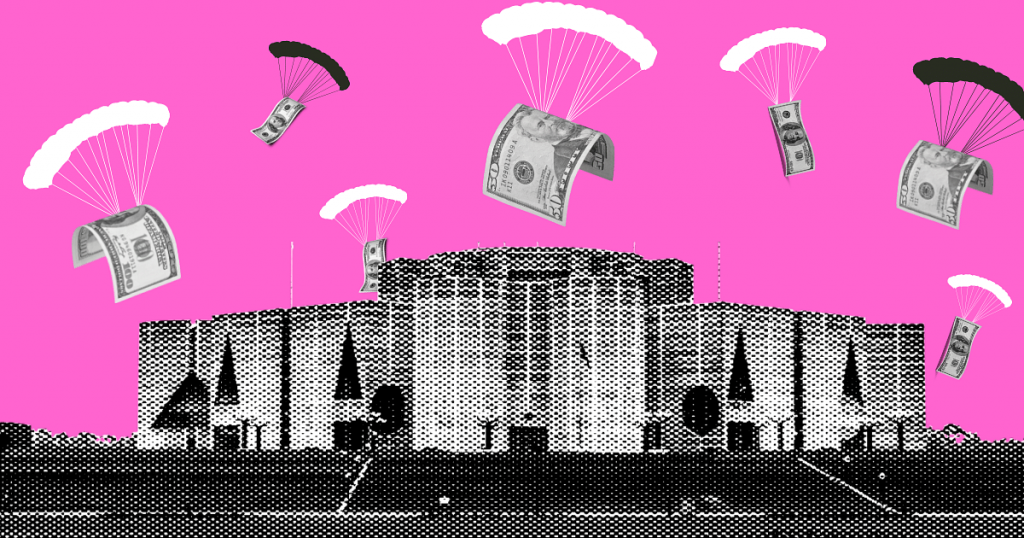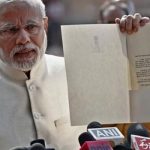By Ashis Biswas
Despite timely steps taken by the Government to avert a Sri Lanka-type of economic meltdown, general concern for the Bangladeshi economy continues. While the International Monetary Fund (IMF) promised a $4.5 billion loan to Bangladesh to help it shore up declining forex reserves, there are worries in Dhaka as to whether Bangladesh will face new pressures to implement deep-going economic reforms.
Suspicions suggesting that Western agencies may extract a political price from Bangladeshi rulers for any relief they might provide, became stronger after a recent visit by IMF authorities to Dhaka. Fund officials had come to assess the present situation in the country. Their gloomy parting words to Dhaka-based Ministers/officials did not generate much joy, going by local media reports.
The IMF fears that the chances of the economy slipping further could not be ruled out, given the existing inflationary conditions, present levels of production and the deteriorating standards of living for most people. Bangladesh urgently needed to initiate much needed reforms within its economy if it wanted to avoid the fate of Sri Lanka.
Meanwhile, section of the local media has been comparing the trajectories of recent economic developments in the two countries. Their overall tone has been noticeably depressive.
With less than a year left for general elections, no wonder the Bangladesh government is caught in a dilemma: it cannot afford to ignore suggestions from helpful Western financial institutions, especially in the present economic crisis. On the other hand, the already hardpressed common people, caught in the worst economic squeeze of their lives, may well erupt in anger towards any further economic burdens imposed on them.
Any further withdrawal of official subsidies in ongoing public welfare schemes at present may just turn out to be the proverbial final straw that breaks the camel’s back: by any reckoning that would be the ruling Awami league’s worst nightmare in an election year !
Also it is common knowledge that while working out any bailout scheme or aid package for developing countries, Western financial advice almost invariably insists on doing away with official pro-poor subsidies in the system to the extent possible.
In common with most governments in the region, Bangladesh used to provide significant subsidies to the power and transport sectors for years to make sure that common people despite occasional price increases for imported fuel (oil, diesel etc) did not suffer too much.
The situation worsened following the outbreak of war in Ukraine, which has already extended over a year. The Bangladeshi economy suffered several major blows and is still reeling from an overall negative impact.
The US dollar strengthened against major world currencies, while the Bangladesh Taka declined in value. Outcome: essential imports like fuels, fertilisers etc became much costlier while previous volumes/levels of exports became increasingly harder to maintain. Within months, Bangladesh’s usually healthy forex reserves which touched $40- billion plus at times, started dwindling and dropped precariously to around $28/29 billion.
The writing was on the wall : within a few months , Bangladesh , which had helped Sri Lanka financially in its desperate battle to escape bankruptcy, was itself seeking help from the IMF, the third country in South Asia to do so after Pakistan and of course Sri Lanka.
Dhaka-based policymakers had little choice but to cut down drastically on subsidies as the prices of fuel (oil, diesel, natural gas and kerosene) rose sharply during the Ukraine war. Its decision to reduce subsidies however hit the common people very hard indeed as in most areas, fuel prices rose by as steep as 50%. No wonder there were angry mass demonstrations, transport strikes and massive power cuts, as the entire economy took a body blow.
It needs stressing that this happened at a time when inflation was around 10% and the price of rice, eggs, fruits, wheat and vegetables had already risen sharply !
The ruling Government simply had no clue. More worryingly, there was nowhere the policymakers could go to for expert advice. Within the region, as stated before Sri Lanka and Nepal were hit even harder if anything and India with problems of its own, had stopped exporting wheat for some time, as supplies from Ukraine and Russia became uncertain.
Yet, it is not as though all hope has run out for Bangladesh, it needs to be stated.
According to sources analysts feel that for Bangladesh, repaying the $4.5 billion IMF loan would not be difficult, despite its present travails. This is where the stronger economic fundamentals of the Bangladeshi economy stand out in strong contrast to conditions and features of the situation prevailing in neighbouring Sri Lanka or Nepal.
In terms of size, production and population, the Bangladesh economy is much bigger than that of either Nepal or Sri Lanka. So are its traditional strengths in the export of garments and the steady volume of the remittances that are regularly sent home by an estimated 13 million-strong Bangladeshi diaspora settled worldwide.
In recent times, there have been occasional wobbles in both these sectors, adding to Bangladeshi concerns: export orders especially from some European countries have fluctuated because of ongoing uncertainties and recessionary trends affecting their economies.
Fortunately however, there have been recoveries as well. It has been no different with remittances either. But for minor hiccups, the large overall volumes of remittances have continued as before.
Given the large Bangladeshi population of around 165 million, with its high percentage of working women and young workers and existing levels of production, it should not be difficult to generate enough revenues in the future, of a magnitude that would enable Dhaka to meet its international obligations, say economists.
However, the power sector suffers from chronic shortages of production and remains an area for concern. GOB has already taken some steps and is desperately asking for more supplies especially from big neighbour India. (IPA Service)




 Competition In The Time Of Neo-Liberalism In India Under Narendra Modi
Competition In The Time Of Neo-Liberalism In India Under Narendra Modi 